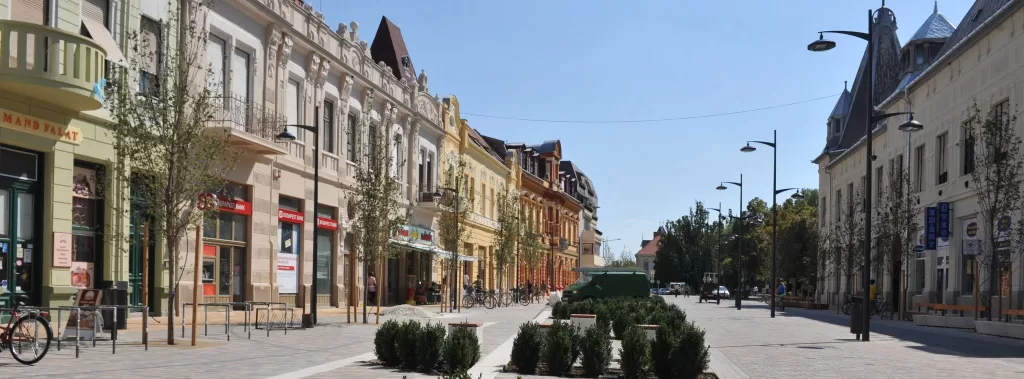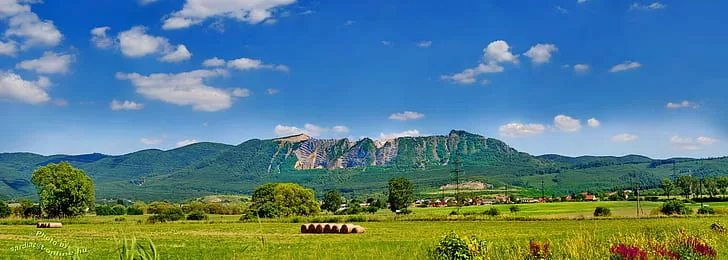Hungary Country Report

Hungary, situated in Central Europe, is known for its rich history, cultural heritage, and diverse landscapes. The capital and largest city is Budapest, renowned for its stunning architecture and thermal baths. Hungary has transitioned from a socialist state to a parliamentary republic with a mixed economy. However, the country faces various challenges, including political controversies, concerns over democratic governance, and issues related to media freedom and civil liberties. The government led by Prime Minister Viktor Orbán, of the Fidesz party, has implemented policies that some critics argue erode democratic institutions and concentrate power. Despite these challenges, Hungary’s economy continues to grow, driven by sectors such as manufacturing, agriculture, and tourism. Efforts to address social and economic disparities, modernize infrastructure, and attract foreign investment are ongoing. Additionally, Hungary’s vibrant cultural scene and historical sites continue to attract visitors from around the world, contributing to the country’s unique identity and appeal.
Last updated: April 8, 2022
Security
Hungary generally maintains a stable security environment, with low levels of violent crime and terrorism. The country benefits from its location in Central Europe, which has historically been relatively free from conflict. However, Hungary faces security challenges related to cyber threats, organized crime, and occasional protests. The government takes measures to address these issues, including enhancing cybersecurity capabilities and cooperating with international partners. Additionally, Hungary is a member of NATO and participates in various security initiatives aimed at ensuring regional stability and collective defense. While the overall security situation in Hungary is favorable, travelers should remain vigilant, particularly in crowded areas and tourist destinations.
Last updated: April 26, 2022
Infrastructure

Hungary boasts a relatively well-developed infrastructure, particularly in its urban centers. The country has an extensive network of roads and railways, facilitating transportation and trade within Europe. Budapest, the capital, is served by modern public transportation systems, including buses, trams, and metro lines. Hungary also has several international airports, including Budapest Ferenc Liszt International Airport, which connects the country to destinations worldwide. In terms of energy infrastructure, Hungary relies heavily on nuclear and renewable energy sources, with a growing focus on sustainability and reducing dependence on fossil fuels. However, rural areas may have less developed infrastructure compared to urban centers, particularly in terms of transportation and access to services. Overall, Hungary’s infrastructure supports the country’s economic development and enhances connectivity both domestically and internationally.
Last updated: March 8, 2023
Environment

Hungary’s environment encompasses diverse landscapes, including fertile plains, rolling hills, and the scenic Danube River. While the country’s natural beauty is significant, Hungary faces environmental challenges, including pollution, habitat loss, and water management issues. Industrial activities and urbanization contribute to air and water pollution, particularly in densely populated areas. Agricultural practices, such as intensive farming and pesticide use, also impact the environment, affecting soil quality and biodiversity. Hungary is vulnerable to climate change, experiencing extreme weather events like floods and droughts with increasing frequency. Efforts to address these challenges include conservation initiatives, renewable energy projects, and water management strategies. Hungary is also committed to international agreements aimed at mitigating climate change and protecting biodiversity. Despite these efforts, ongoing vigilance and action are needed to safeguard Hungary’s natural environment for future generations.
Last updated: March 2, 2022
Health and Medical
Hungary’s healthcare system is characterized by universal coverage and high-quality medical services. The country has a comprehensive network of healthcare facilities, including hospitals, clinics, and specialized medical centers, which provide a wide range of services to residents. Hungary boasts a well-trained healthcare workforce, including doctors, nurses, and other medical professionals. Additionally, the country prioritizes preventive care and public health initiatives, promoting healthy lifestyles and disease prevention. While the healthcare system is generally efficient and accessible, there are some challenges, including disparities in access to care between urban and rural areas, and concerns about the sustainability of healthcare financing. Overall, Hungary’s healthcare system is recognized for its high standards and commitment to providing quality care to its population.
Last updated: September 14, 2022
Political
Hungary’s political landscape has been dominated by the Fidesz party, led by Prime Minister Viktor Orbán, since 2010. Orbán’s government has implemented controversial policies aimed at strengthening national sovereignty and promoting conservative values. These policies have drawn criticism both domestically and internationally, with concerns raised about democratic backsliding, erosion of checks and balances, and restrictions on media freedom and civil liberties. The government’s approach to issues such as immigration, the rule of law, and EU integration has also sparked debates within Hungary and raised tensions with European Union institutions. Despite these controversies, Fidesz maintains a strong electoral base and has won consecutive elections, solidifying its hold on power. The political situation in Hungary continues to evolve, with ongoing debates about the balance between national sovereignty and democratic principles shaping the country’s future trajectory.
Last updated: March 8, 2023















